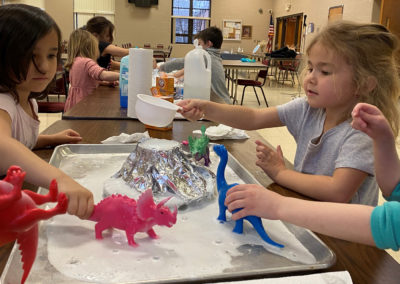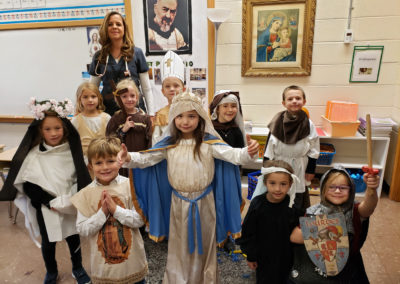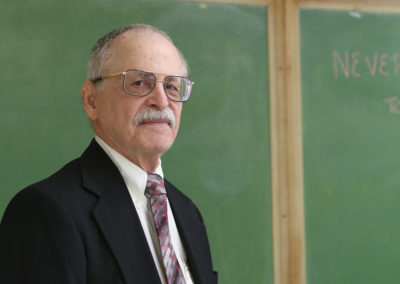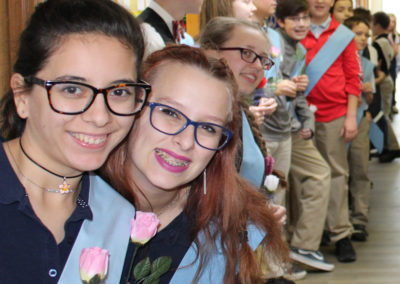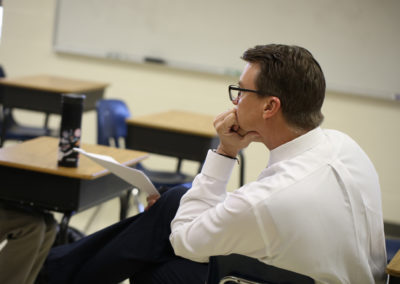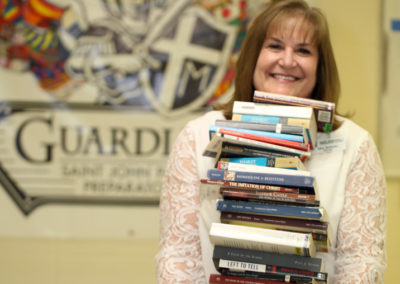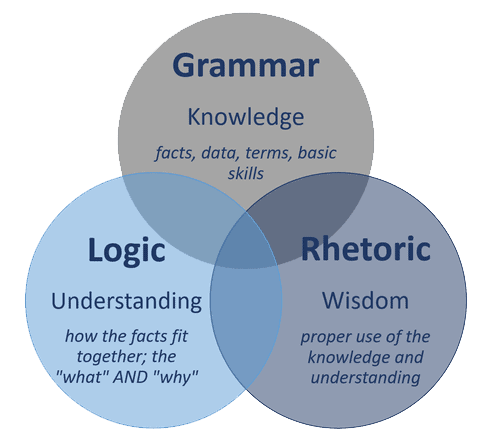Classical Education
Why Classical Education?
At JPII we are proud to offer our students a classical education, based on centuries of Western tradition.
As Catholics, we want to live our faith authentically in the world, but we cannot live it unless we understand our faith and the world, and to understand we must immerse ourselves in the substance of both.
Catholic classical education is the framework for the content of our program.
We focus on understanding core facts and concepts, learning fundamental skills, and living an authentic Christian life. We do this in part by exploring the lives and societies of history’s holy, wise, and influential men and women.
With our curriculum, JPII students are exposed to the best of Western civilization and culture. They learn about:
- The harmony which exists between faith and reason, especially in the study of the sciences.
- Literature selections assist the genuine development of the human person by using examples of virtue and vice, which allow students the opportunity to learn examples of nobility and courage.
- Studies of history and government help students understand and commit to the common good, the needs of the poor, human rights, and human dignity.
Our classical curriculum unites us with our past and systematically trains students to think critically and express themselves eloquently in writing and speaking.
This context provides students the tools they need to understand the Gospels, the saints, the writings of the Church, philosophy, literature, politics, the process of discovery in science, the use of imagination, and logic in problem-solving.
Ultimately, they learn how to be tomorrow’s clear communicators, wise decision-makers, and holy saints who promote and defend the faith of Jesus Christ.
What is classical education?
At the core of classical education is the trivium: grammar, logic, and rhetoric.
An article from Biola University defines the three steps of the trivium this way: “To teach students to (a) memorize the basic facts, (b) learn how the facts fit together to form a coherent whole, and (c) to learn how to present the facts in a winsome and convincing way.”
The three stages of the trivium naturally follow stages of a student’s development, from a child’s love of and ease with memorization through a teenager’s ceaseless questioning to a young adult’s desire to define themselves and their world.
Donate today to support our mission.
Supports Catholic families with multi-child discount and need-based tuition assistance
Rewards high quality, faith-filled, and dynamic teachers
Expands extracurricular opportunities
Provides solid Catholic education not underwritten by any parish, religious order, or the Archdiocese

